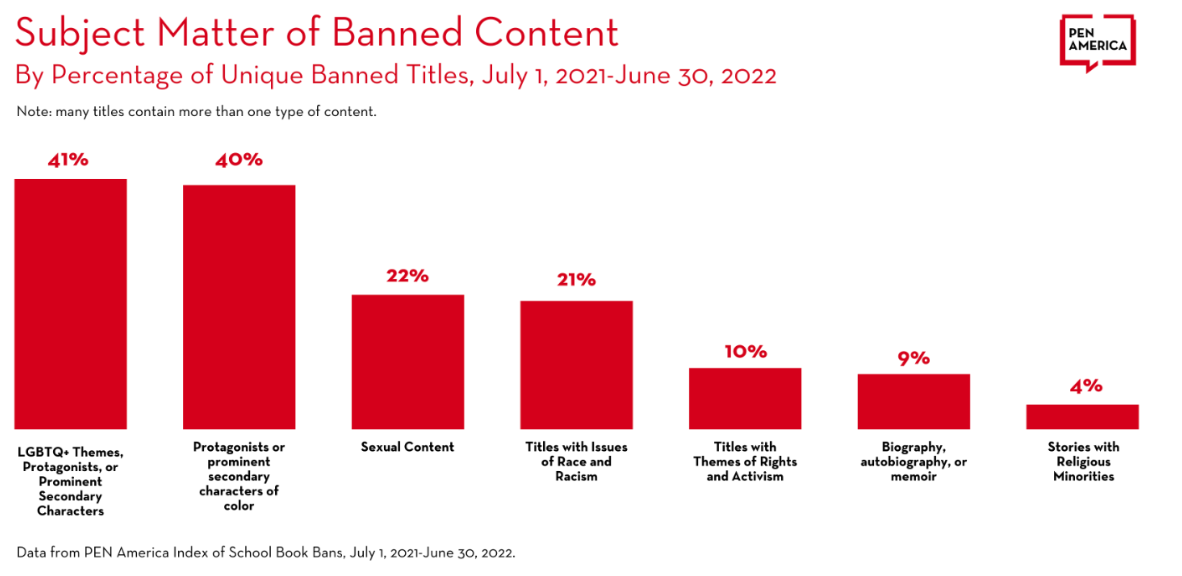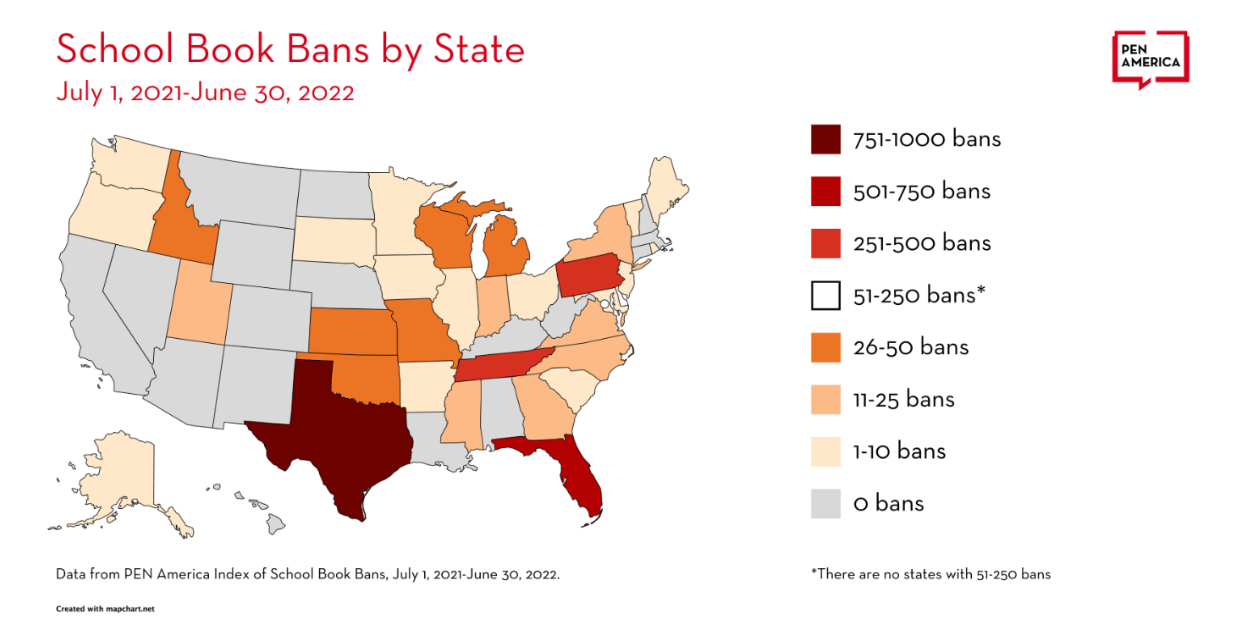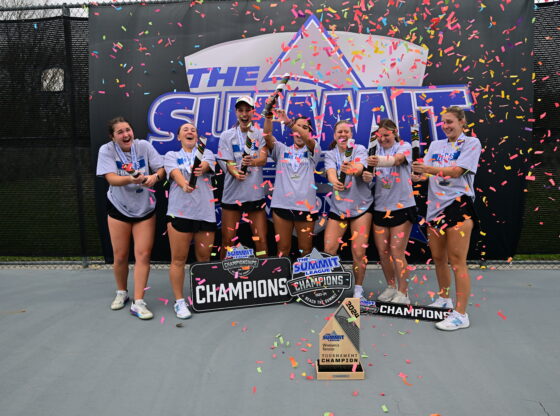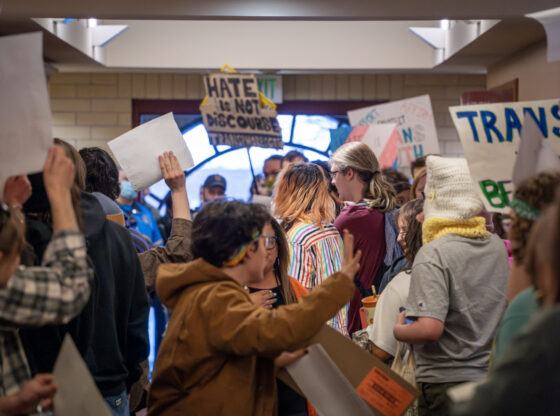All over the United States, children are losing access to information. Over 1,200 book-banning efforts took place in 2022, almost double the amount in 2021. Officials and school districts continue to ban books from public libraries and restrict kids’ independent access to literature, which state legislatures have selectively deemed unfit, defying precedent. Children are having a harder time than ever exercising the constitutionally-justified freedom to read.
For many kids, the first step to independent thinking is choosing what media to consume, whether it’s cartoons they watch, the games they play or books they read. These banning efforts restrict one of the most crucial elements of child development and restrict children from seeing different types of representation in literature.

Graph courtesy of PEN America
According to a report by PEN America, of more than 5,000 banned books, 41% have contained “LGBTQ+ themes, protagonists, or prominent secondary characters” and 40% have featured “protagonists or prominent secondary characters of color.”
This indicates a concerning pattern. The majority of the officials choosing to ban these books, especially in Florida, are older, straight white people who seem to see stories of people other than themselves as inappropriate for children. The number one banned book is “Gender Queer,” by Maia Kobabe, a graphic novel memoir about Maia’s story of coming of age as a person who exists outside the gender binary. The book is banned specifically for its discussion of gender identity and female sexuality, topics that seem bound to get books taken off the shelves.

Map courtesy of PEN America
Additionally, a majority of the bans have taken place in southern states, some of which have been showing other signs of censorship in recent years. In Florida, where there have been 566 book bans in 21 school districts, the students have dealt with an unprecedented amount of censorship. From the Don’t Say Gay Bill to these latest bans, “parents’ rights” have taken over many schools in the state.
Even the wording of history textbooks is being changed to make them more palatable to the people in power. Last July, Florida’s House Bill 7 began restricting what kids can learn in school, including topics about race. As a result, one textbook was changed to remove all mention of race in regard to Rosa Parks’ story. It went from saying she was told to move because of the color of her skin, to only saying that she refused to move without explaining the reason she was asked to move in the first place.
This censorship directly impedes students’ and teachers’ first amendment rights. Several court cases over the last century have upheld schools’ rights to choose which books are included in their library, regardless of government opinion. For example, Evans v. Selma Union High School District of Fresno County in 1924 upheld the school’s right to have the Bible on its library shelf regardless of the book’s religious nature. Additionally, in 1972 Todd v. Rochester Community Schools took place in an attempt to ban “Slaughterhouse-Five” from Michigan schools. The Court of Appeals of Michigan responded, “the students of Michigan are free to make of Slaughterhouse-Five what they will,” further confirming students’ right to free access of information. There are many cases continuing to uphold that freedom to read as an important part of the Bill of Rights, something school boards and officials do not have to power to change. The book bans of 2022 are unconstitutional, going against the first amendment and important precedence and denying students and teachers their rights.
Children deserve to have access to books with diverse representations and truthful histories. Book banning impedes the rights to free speech and access to information. It prevents kids from learning information, however mild, outside the bias of their authority figures. There is something very dystopian about not allowing kids to go to the library alone, or choose books about people with identities that differ from the white cis-gender norms of the media. Books represent freedom of knowledge and if they can be banned from public access, we are in for a slippery slope.











